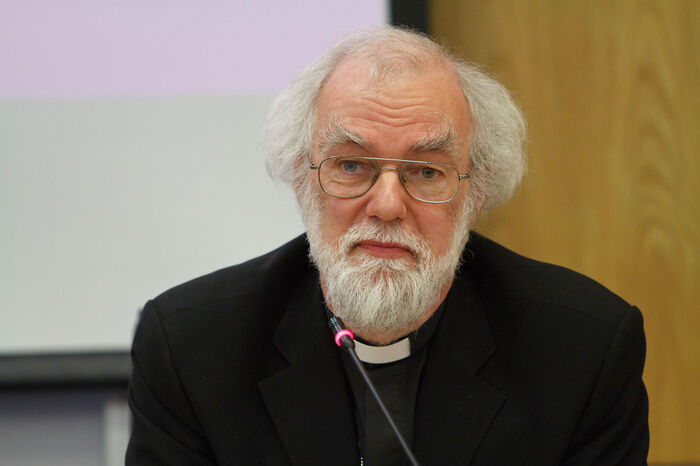
The Cambridge Zero Carbon Society has today released a report calling on the university to “withdraw all its investments from fossil fuel stocks, bonds and investments”, arguing that divestment is a “moral imperative for the University of Cambridge”.
The 74-page report, entitled Fossil Fuel Divestment at the University of Cambridge, was written by members of the Society, and has a foreword from the Master of Magdalene College and former Archbishop of Canterbury, Rowan Williams.
In his foreword, Williams praises the report as a “worthy product of Cambridge at its best”, and argues that the issue of climate change “is one that is seen increasingly clearly to be bound up with these basic matters of justice”.
The report argues that it is “indefensible” for the university to invest in a manner which “actively propagates” the “global disaster” of climate change.
It states that Cambridge “must acknowledge its responsibility as both a major investor and as a respected institution”, and that for it to continue to invest in fossil fuel companies “is not only to legitimise them but also to profit from their harmful practices.”
Cambridge’s status as a “world-leading institution”, it continues, means that its “decisions reverberate around the world”.
“This places a considerable burden of responsibility on Cambridge to make the right choice, while also providing the university with an incredible opportunity to positively influence global debates about climate change.”
It warns that, despite their “excellent opportunity to take a lead in the low carbon transition university”, Cambridge also “runs the risk of falling on the wrong side of history should it choose not to divest.”
The report also argues that, as an academic institution, the university “should align its investment policy with the consensus of its research”, and that, as climate change research is a “common theme in a significant proportion of departments in Cambridge”, a “reflection of this interest and expertise” is “necessary” in the university’s investment policy.
It goes on to reject what it terms “soft” approaches to investment, such as shareholder engagement, as “ineffective”, claiming that they “cannot hope to achieve change on the scale or timeframe necessary”.
“Divestment forces and frames the debate in a fashion appropriate to the severity and urgency of the issue, allowing it to impact both policy and public consciousness”, it continued.
In a statement to Varsity, the Zero Carbon Society said: “Whether it’s the £112 million that might have been saved by divesting three years ago, the core aims and values of the University that run counter to fossil fuel investments, or simply Cambridge’s responsibility as a moral institution to fight the existential threat to humanity that is climate change, divestment represents common sense on every level.”
“It is also urgently needed – the poorest and most vulnerable in this world are dying of drought, extreme weather and other horrors, because of our fossil fuel addiction. In the week that the biggest private sector coal mining company in the world went bust and global temperature records were once again smashed, there could not be a more appropriate time to act”, it continued.
In November 2015, CUSU Council passed a motion in support of divestment, which stated: “it is morally wrong for the University to invest in fossil fuel reserves while leading the way in sustainability research”.
The report will be submitted for consideration by a working group of the Advisory Committee on Benefactions and External and Legal Affairs (ACBELA), established in May 2015.
The Committee’s goal is to evaluate the university’s Statement of Investment Responsibility in light of “developments in the understanding of the integration of environmental, social, and governance aspects... in investment decisions” in relation to the university’s “mission and core values” – particularly its stated value of “concern for sustainability and its relationship with the environment”.
The group is due to submit its own report of recommendations to the University Council on 23rd May this year.
Speaking to Varsity, the Zero Carbon Society Campaigns Officer, Alice Guillaume, said: “Cambridge’s divestment from fossil fuels is not just an economic issue: it is a moral, social and political necessity.”
“If the university is serious about its image as a morally responsible, future-orientated and globally engaged institution, it needs to end its investments in the very companies that are putting our planet, and particularly the most vulnerable, at risk”, she continued.
The Zero Carbon Society began its divestment campaign in Michaelmas last year, and has gathered over 2,000 signatures on a petition calling for the university to divest. The Society is also planning a ‘March for Divestment’ on 30th April.
 News / Judge Business School advisor resigns over Epstein and Andrew links18 February 2026
News / Judge Business School advisor resigns over Epstein and Andrew links18 February 2026 News / Gov grants £36m to Cambridge supercomputer17 February 2026
News / Gov grants £36m to Cambridge supercomputer17 February 2026 News / Hundreds of Cambridge academics demand vote on fate of vet course20 February 2026
News / Hundreds of Cambridge academics demand vote on fate of vet course20 February 2026 News / CUCA members attend Reform rally in London20 February 2026
News / CUCA members attend Reform rally in London20 February 2026 News / Union speakers condemn ‘hateful’ Katie Hopkins speech14 February 2026
News / Union speakers condemn ‘hateful’ Katie Hopkins speech14 February 2026











